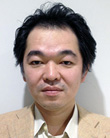Now published, see the full article 
Early Abstract:
Introduction: In Japanese medical schools, a special regional quota (chiikiwaku) system has been widely implemented to increase the number of physicians in medically underserved areas (MUAs). Regional quotastudents are required to take out a student loan but are exempted from repayment after fulfilling an approximately 9-year obligatory practice period. This study investigated the anticipated willingness of final-year regional quota students to remain in MUAs after their obligatory practice period, as well as factors associated with this willingness during students’ first year.
Methods: The participants in this prospective observational study were all regional quota students at Japanese medical schools. Baseline data were collected when students were in their first year, and their anticipated willingness to remain in MUAs after their obligatory practice period was the primary outcome, determined by questionnaire during the students’ final year. The association between baseline data and willingness to remain in MUAs was analyzed by the chi-square test and logistic regression analysis.
Results: At baseline, 405 first-year students in 38 medical schools answered the questionnaire; of these, 208 (51.4%) students were followed-up 5 years later. The proportion of regional quota students who anticipated being willing to remain in MUAs decreased from 52.3% to 19.2% after 5 years. In multivariate analysis, anticipated willingness to remain in MUAs in the sixth year was associated with rural upbringing (odds ratio (OR), 2.1), influence of income on work preference (OR, 0.3), and willingness to remain in MUAs as assessed during the first year (OR, 3.3).
Conclusions: Regional quota students’ anticipated willingness to remain in MUAs decreased as they progressed through medical school. To increase the number of physicians in MUAs, it may be useful to recruit regional quota students who come from rural areas, who do not place a high priority on expected incomes, and who initially anticipate a willingness to remain in MUAs.



